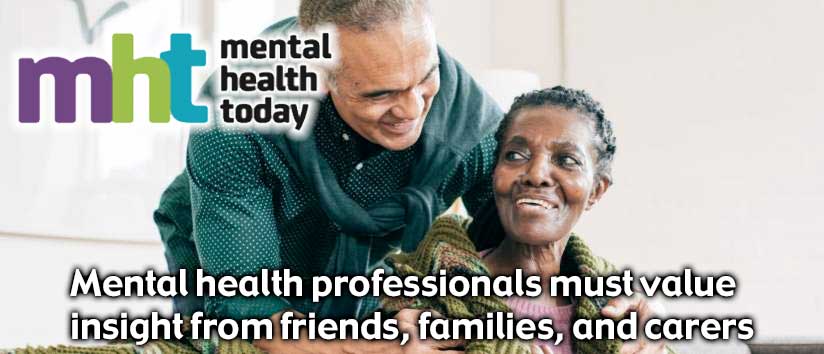Mental health professionals must value insight from friends, families, and carers
Friends, families, and carers “sense a resistance to being heard and feel their expertise isn’t being valued.”
I had been in a depressive episode which was so debilitating that I had to be admitted to psychiatric hospital. And yet within days of being discharged, I was going out every night partying, with seemingly limitless energy and euphoria. The contrast was so marked that my friend commented “It’s like a miracle.” Then he thought about it and said “Do you think you might have Bipolar Disorder?”
Diagnosing disorders
The prospect had never occurred to me. I went to see my doctor and he started monitoring my moods. He eventually referred me for a psychiatric assessment and I was diagnosed with Bipolar Disorder Type 2. I was fortunate that he referred me to an NHS Trust in another county where they specialised in Mood Disorders.
It was also a close friend who realised that I was suffering from traumatic grief after the death of my mother, for whom I had been a full-time carer. Traumatic grief can cause symptoms of Post-Traumatic Stress Disorder which may delay the grieving process, perhaps for years. It’s important to get help for the post-traumatic symptoms but, in my experience, mental health clinicians often miss the signs of it.
Share This Post:









Leave a Reply